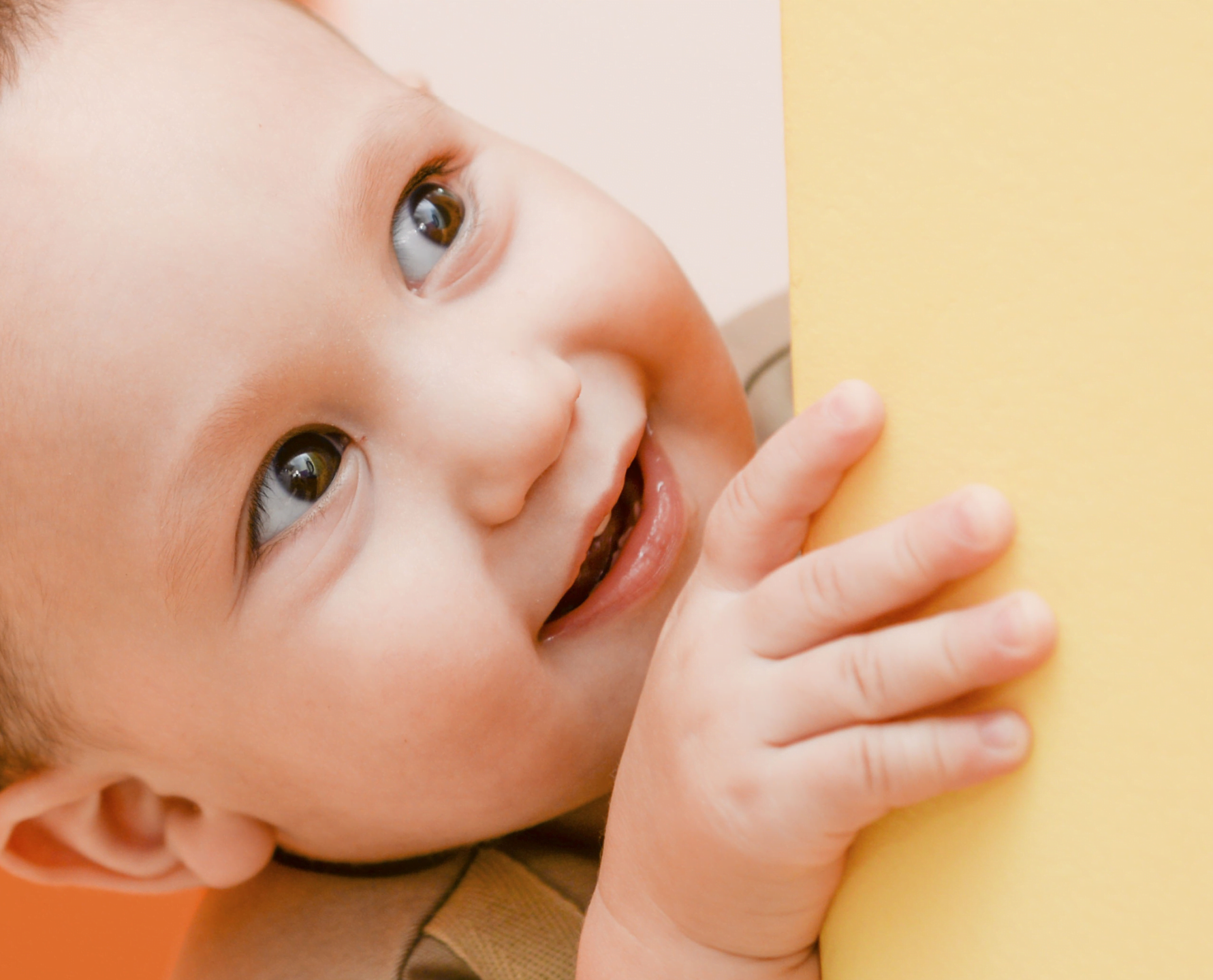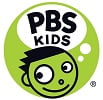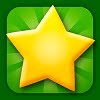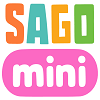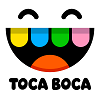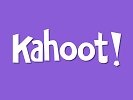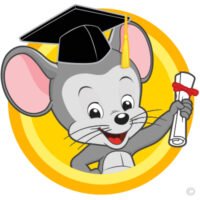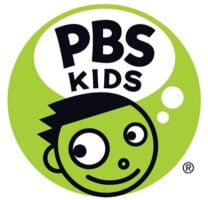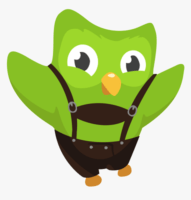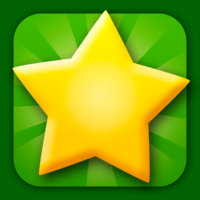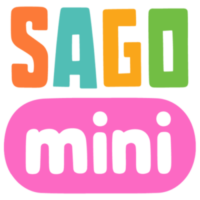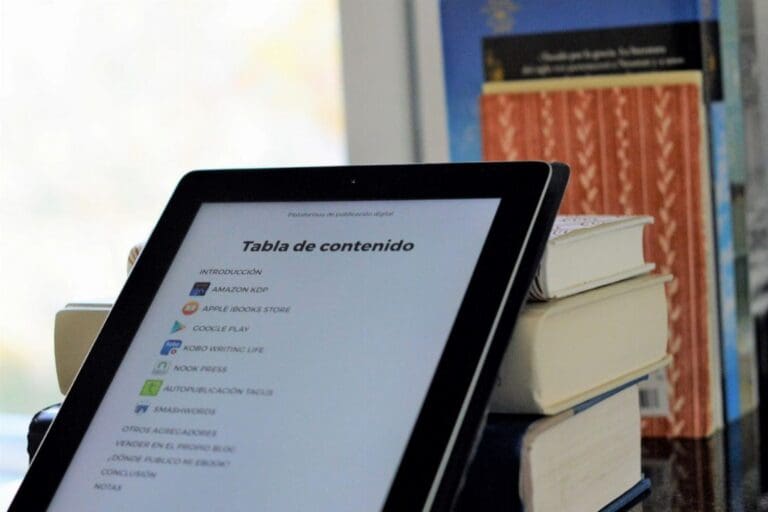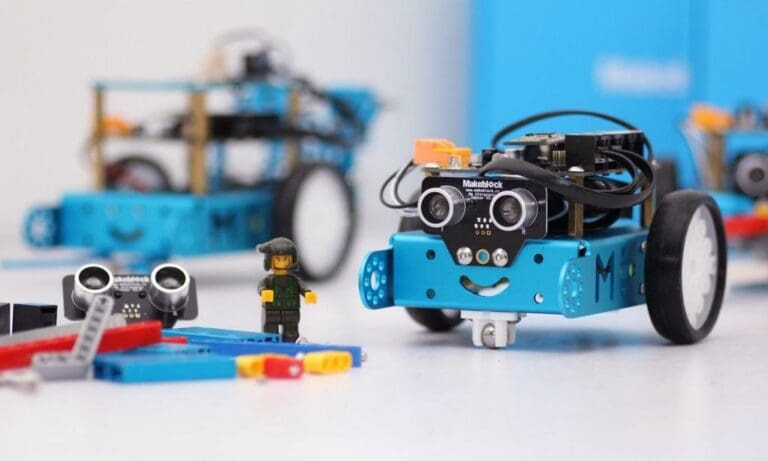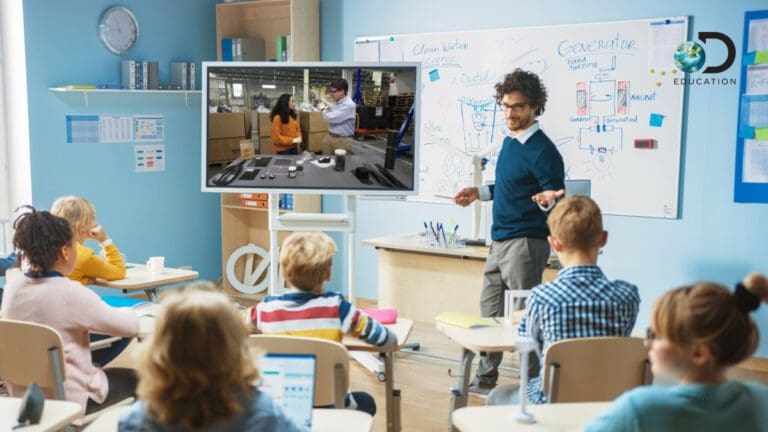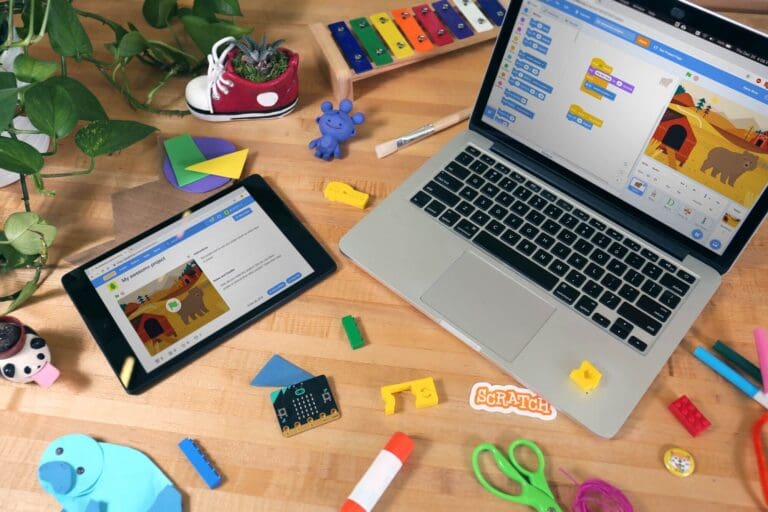Best Apps for Kids Learning: Top 8 Picks for Ages 3-5
Duolingo ABC
Rating: 4.3
Price: free
Phonics, Vocabulary, Spelling, Grammar, Writing. English and Spanish.
Starfall
Rating: 4.5
Price: $35 / year
Reading, Math, Science, Social studies, Art and Creativity
Sago Mini World
Rating: 4.4
Price: $6.99 / month
Creativity, Math, Science, Social-emotional learning, Life skills
Toca Boca
Rating: 4.5
Price: free
Creativity and imaginative play, Problem-solving, Social skills, Nature Exploration
Kahoot!
Rating: 4.6
Price: $39 / month
Basic math concepts, Language, Science, Social and emotional learning
When it comes to education, all parents want the best for their kids. It might be daunting to find the best learning and educational applications and services for kids with so many options accessible. Due to this, we have reviewed some of the best resources for early childhood education, particularly for children between the ages of 3-5.
Learning apps have become increasingly popular among students of all ages. Parents started to see many benefits in using devices and apps for kids learning, including flexibility and convenience, as they can be accessed anywhere and anytime. also offer interactive and engaging content, which can enhance the retention and understanding of the material being taught. Best free learning apps for kids can also be very effective, as they eliminate the need for expensive textbooks and classroom resources.
Before choosing an online program for my child, there are several questions I ask myself to ensure that the program is the right fit.
What can I teach my 4 years old at home?
There are many things I can consider for my 4-year-old, and I started to realize how amazing it is that we have devices and apps for kids learning to help with it. Here are some ideas, but indeed the choice should be made based on the current interest of the kid:
- Early literacy skills: You can teach your child to recognize letters and their sounds and introduce them to basic sight words.
- Math skills: You can teach your child basic math concepts, such as counting, adding and subtracting, and recognizing shapes and patterns.
- Social-emotional skills: You can help your child develop social-emotional skills by teaching them about emotions, empathy, and communication.
- Science and nature: You can explore the natural world with your child by going on nature walks, observing animals, and conducting simple experiments.
- Creative play: You can encourage your child’s creativity by providing materials for art projects, music, and imaginative play.
- Fine motor skills: Activities that help develop fine motor skills, such as drawing, coloring, and cutting, can also benefit this age group.
- Life skills: You can help your child develop practical life skills, such as dressing, using utensils, and cleaning up after themselves.

What are good apps for 3-4 years old?
Here we come to more detailed questions, and the first one we should think about is:
What is the age range and skill level of the program? Ensure the program is appropriate for your child’s age and skill level.
What subject(s) does the program cover? If your child needs help with a specific subject, ensure the program covers that subject.
How is the program structured? Is it self-paced or instructor-led? Does it have interactive features like quizzes and games?
What is the cost of the program? Is it a one-time fee or a subscription? Are there any free options available?
Are there any reviews or testimonials available from other parents or educators who have used the program? What do they say about the program’s effectiveness and ease of use?
You can decide which online program best fits your child’s learning needs by answering these questions. In this blog article, we’ll describe each app or service’s features, advantages, and disadvantages to help you decide which is best for your child’s educational needs. We have everything you need, whether you’re searching for a fun and engaging approach to help your child learn in school or build necessary abilities. So let’s get started and learn about the top resources for early childhood education!
ABC Mouse
- Score: 4.5
- 2 to 8 years old
- Type: Website and mobile app
Features: ABCmouse provides young children with a thorough educational experience, with various activities and games created to teach fundamental abilities in reading, writing, math, and more. A platform is a fantastic option for families and educators because it has over 9,000 activities and 850 classes. ABCmouse also has features like progress monitoring, personalization, and a rewards system to keep kids motivated and interested in their studies.
Subjects:
- Reading: The program offers interactive books, games, and activities to help children develop early literacy skills, such as phonics, vocabulary, and reading comprehension.
- Math: The program includes math lessons and activities that cover basic math concepts, such as counting, addition, subtraction, and geometry.
- Science: The program offers lessons and activities that cover topics such as animals, plants, weather, and the human body.
- Art and music: The program includes lessons and activities focused on art and music, including drawing, painting, singing, and playing instruments.
- Social studies: The program offers lessons and activities covering geography, history, and culture.
Pros:
- Various exercises and classes to impart important skills
- Children’s motivation is increased by using a progress monitoring and incentive system.
- Personalization tools to tailor each child’s educational experience
- Accessible via a website and a mobile app
Cons:
- A few customers have complained about the app’s technical troubles.
- Need a paid subscription to access everything
ABCmouse is a thorough teaching platform for young children, in conclusion. It’s a fantastic option for families and educators because to its extensive assortment of activities and courses, progress monitoring, and incentives system.
However, some users could find the requirement for a monthly membership and the app’s technical faults to be a turn off. Despite this, the ABC mouse is a top pick for parents and educators who want to help their children’s education because of its high quality and variety of functions. ABCmouse is undoubtedly worth looking at, regardless of whether your youngster is just beginning their educational path or wants to improve on the abilities they’ve previously mastered.
PBS Kids
- Score: 4.5
- 2 to 8 years old
- Type: Website and mobile app
Features: To help kids learn fundamental skills in reading, writing, math, and other subjects, PBS Kids provides a comprehensive selection of educational games and activities. Platform is a terrific option for families and educators since it has games and activities based on well-known PBS Kids series like “Curious George” and “Sesame Street.” In addition, PBS Kids offers tools like progress monitoring, personalization, and a rewards system to keep kids interested in and motivated by what they are learning.
Subjects:
- Reading: PBS Kids Games offers games and activities that help children develop early literacy skills, such as phonics, vocabulary, and reading comprehension.
- Math: The website includes math games and activities that cover basic math concepts, such as counting, addition, subtraction, and geometry.
- Science: PBS Kids Games offers games and activities that cover a range of science topics, such as animals, plants, weather, and the human body.
- Social studies: The website includes games and activities covering geography, history, and culture.
- Creative play: PBS Kids Games provides creative play, and imaginative learning opportunities through games and activities focused on art, music, and storytelling.
Pros:
- Various instructional games and exercises based on well-known PBS Kids programs are available.
- Children’s motivation is increased by using a progress monitoring and incentive system.
- Personalization tools to tailor each child’s educational experience
- accessible via a website and a mobile app
- Cons: A few customers have complained about the app’s technical troubles.
- There may be a fee associated with some games and activities.
Cons:
- A few customers have complained about the app’s technical troubles.
- There may be a fee associated with some games and activities.
For young children, PBS Kids is a top-notch educational resource. It’s a fantastic option for families and educators because to its extensive selection of educational games and activities, progress monitoring, and incentives system. Even while the app has some technical faults and some games and activities need a paid membership, its overall quality and feature set make it a top pick for parents and teachers wishing to help their students’ education. PBS Kids is unquestionably worthwhile checking out, regardless of whether your child is just beginning their educational path or wants to expand on the skills they’ve previously gained.
Duolingo ABC
- Score: 4.3
- 2 to 8 years old
- Type: Website and mobile app
Features: Duolingo is a thorough platform for language learning that provides lessons in over 35 different languages. The learning environment on the platform is gamified, and the courses and exercises are made to be entertaining and interesting. Duolingo has tools that keep users motivated and involved in their language learning, like progress monitoring, daily goals, and virtual language exchange. The platform is user-friendly and accessible because it is offered as a mobile app and a website.
Subjects:
- Phonics: The app includes lessons and activities that help children learn the sounds of English letters and how to blend them together to form words.
- Vocabulary: The app introduces children to new words and helps them practice using them in context.
- Spelling: The app includes activities that help children learn to spell words correctly.
- Grammar: The app covers basic grammar concepts, such as parts of speech and sentence structure.
- Writing: The app allows children to practice writing words and sentences.
Pros:
- Gamified learning that is entertaining and interesting
- Accessible in over 35 languages, comprehensive language training
- Users are kept motivated by daily goals and progress monitoring.
- Users have the chance to converse with others in a virtual language exchange.
- Accessible via a website and a mobile app
Cons:
- A few customers complained that the app’s speech recognition feature was problematic.
- Ads are present in the app’s free edition.
Duolingo is an excellent language-learning resource. It’s a fantastic option for anybody wishing to learn a new language thanks to its entertaining and engaging learning methodology, thorough language courses, and a variety of features to keep users motivated. The platform is a top choice for language learners despite some users having issues with the app’s speech recognition feature due to its high quality and variety of features. Regardless of your level of language proficiency, Duolingo is unquestionably worthwhile.
Khan Academy Kids
- Score: 4.5
- 2 to 8 years old
- Type: Website and mobile app
Features: Khan Academy Kids is a thorough instructional tool for young children. The program has a huge selection of exercises and games to educate kids on fundamental abilities, including reading, writing, math, and critical thinking. Children may stay motivated and interested in their learning by using tools like progress monitoring, personalization, and a rewards system included in the app.
Subjects:
- Reading: The app offers a variety of interactive books and activities that help children develop early literacy skills, such as phonics, sight words, and reading comprehension.
- Math: The app includes math lessons and activities that cover basic math concepts, such as counting, addition, subtraction, and geometry.
- Science: Khan Academy Kids offers lessons and activities that cover a range of science topics, such as animals, plants, weather, and the human body.
- Social studies: The app includes lessons and activities covering geography, history, and culture.
- Social-emotional learning: Khan Academy Kids provides lessons and activities that help children develop important social-emotional skills, such as empathy, self-awareness, and self-regulation.
Pros:
- Various games and activities that teach important abilities
- Children’s motivation is increased by using a progress monitoring and incentive system.
- Personalization tools to tailor each child’s educational experience
- A mobile app that is accessible on iOS and Android
Cons:
- A few customers have complained about the app’s technical troubles.
- A subscription may be necessary for some activities.
Khan Academy Kids is a top-notch educational software for young children. It’s a fantastic option for families and educators because of its holistic approach to learning, a vast number of activities, and a range of features to help kids stay motivated and involved. Even if the app has some technical faults and some activities need a paid membership, its overall quality and feature set make it a top pick for parents and teachers who want to help their students’ education. Khan Academy Kids is unquestionably worthwhile taking a look at, regardless of whether your child is just beginning their educational path or want to improve on the abilities they’ve previously gained.
Starfall
- Score: 4.5
- 3 to 9 years old
- Type: Website and mobile app
Features: Children may learn reading, math, and other key skills through various games and activities on the complete educational platform Starfall. The site offers kids many interesting and entertaining activities, such as arithmetic games and interactive storytelling. Additionally, Starfall provides lesson ideas, printouts, and advice on using the platform successfully for parents, instructors, and students.
Subjects:
- Reading: Starfall offers interactive books, songs, and activities that help children learn to read and develop early literacy skills, such as phonics, sight words, and reading comprehension.
- Math: The program includes math games and activities that cover basic math concepts, such as counting, addition, subtraction, and geometry.
- Science: Starfall offers science lessons and activities that cover a range of topics, such as animals, plants, weather, and the solar system.
- Social studies: The program includes lessons and activities covering geography, history, and culture.
- Art: Starfall provides opportunities for creative play and artistic expression through activities focused on drawing, painting, and music.
Pros:
- Platform for education that is comprehensive and offers a variety of activities
- Learning activities that are interesting and entertaining
- Ad-free environment
- Pleasant user interface
- Available as a mobile app and a website
Cons:
- A subscription may be necessary for some activities.
- There are just a few free resources.
For kids ages 3 to 9, Starfall is a fantastic educational resource. It’s an excellent tool for teaching kids important skills in a fun and interesting approach because it has many exercises. Platform is a terrific option for families and educators because of its extensive resources and advice for parents and instructors. Nevertheless, a disadvantage for certain users may be the small number of free resources and the requirement for a paid subscription for some services. In spite of this, Starfall is a superb teaching platform that is unquestionably worthwhile exploring.
Sago Mini World
- Score: 4.7
- 2 to 5 years old
- Type: Website and mobile app
Features: Sago Mini World offers a variety of creative play activities designed to promote imagination, problem-solving, and social-emotional development. The app features a collection of colorful, interactive scenes that children can explore and interact with, such as a kitchen, a doctor’s office, and a space station. Many users praise the app for its engaging and high-quality graphics and ability to promote creativity and imaginative play in young children.
Subjects:
- Creativity: The app allows children to express their creativity through imaginative play, storytelling, and art activities.
- Math: Sago Mini World includes games and activities introducing basic math concepts, such as counting, sorting, and matching.
- Science: The app offers activities encouraging children to explore and learn about the natural world, such as gardening, animal care, and space exploration.
- Social-emotional learning: Sago Mini World includes activities that help children develop important social-emotional skills, such as empathy, self-awareness, and problem-solving.
- Life skills: The app provides opportunities for children to practice real-world skills, such as cooking, cleaning, and caring for pets.
Pros:
- Age-appropriate content: Sago Mini World is designed specifically for children ages 2-5, which means the content is tailored to their developmental needs and interests.
- Engaging activities: The app offers a variety of fun and interactive activities, such as games, puzzles, and art projects, that can keep children engaged and entertained for hours.
- Educational value: Sago Mini World covers a range of subjects, including math, science, and social-emotional learning, which can help children develop important skills and knowledge.
- No ads or in-app purchases: The app is free from ads and in-app purchases, so parents can feel confident that their children are not being exposed to inappropriate content or spending money without permission.
Cons:
- Limited content: Some users may find the app’s content limited or repetitive, which could lead to boredom or disinterest over time.
- Cost: While the app is free, access to all its features requires a subscription, which could be a financial barrier for some families.
- Device compatibility: Sago Mini World may not be compatible with all devices, which could be a limitation for some users.
- Technical issues: Like any app, Sago Mini World may experience occasional technical glitches or bugs, which could disrupt the user experience.
The app offers various engaging activities covering multiple subjects, including math, science, social-emotional learning, and life skills. It is designed with age-appropriate content, which can help children learn and develop important skills while having fun. While the app is free, access to all features requires a subscription, which could be a financial barrier for some families. Additionally, the app’s limited content and occasional technical issues may disadvantage some users. Overall, Sago Mini World can be a valuable learning tool for young children, but parents should consider these potential pros and cons before deciding if it is the right choice for their family.
Toca Boca
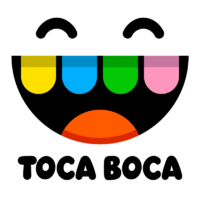
- Score: 4.5
- 3 to 8 years old
- Type: Website and mobile app
Features: Toca Boca offers a range of apps designed for children of different ages. Some apps, such as Toca Kitchen and Toca Hair Salon, are designed for children ages 3-5, while others, such as Toca Life World and Toca Builders, are geared towards slightly older children between the ages of 6-8. It’s always a good idea to check the recommended age range for each app before downloading it to ensure it is appropriate for your child’s developmental stage.
Subjects:
- Creativity and imaginative play: Many of Toca Boca’s apps, such as Toca Kitchen and Toca Hair Salon, encourage children to use their imaginations and creativity as they experiment with different tools and objects in virtual play spaces.
- Problem-solving: Toca Boca’s apps often present children with problems to solve, such as puzzles or challenges that require logical thinking and problem-solving skills. Apps like Toca Mystery House and Toca Life: Hospital offer opportunities for children to problem-solve in a fun and interactive way.
- Social skills: Toca Boca’s apps allow children to practice social skills such as sharing, taking turns, and working with others. Apps like Toca Life: City and Toca Life: School offer virtual environments where children can interact with characters and practice social skills safely and flexibly.
- Basic science concepts: Toca Boca’s science-focused apps, such as Toca Lab and Toca Nature, offer opportunities for children to learn about basic science concepts, such as the properties of different materials, the characteristics of different plants and animals, and the basics of chemistry and physics.
- Basic math concepts: Some of Toca Boca’s apps, like Toca Builders and Toca Store, offer opportunities for children to learn basic math concepts such as counting, sorting, and matching.
- Nature exploration: Toca Boca’s apps often offer opportunities for children to explore the natural world, whether it’s through virtual nature walks in Toca Nature or by planting virtual gardens in Toca Life: Farm. These apps can help children develop an appreciation for nature and an understanding of basic ecological concepts.
Pros:
- Educational value: Toca Boca’s apps are designed to be both fun and educational, offering opportunities for children to learn and develop a range of skills in areas such as problem-solving, creativity, social skills, and basic academic concepts.
- Safe and child-friendly: Toca Boca’s apps are designed specifically for children and are free of ads and in-app purchases, making them a safe and child-friendly option for parents.
- A diverse range of apps: Toca Boca offers a diverse range of apps covering a variety of subjects and interests, providing options for children with a variety of preferences and learning styles.
- Interactive and engaging: Toca Boca’s apps are highly interactive and engaging, featuring colorful graphics and characters that are designed to capture children’s attention and keep them engaged.
Cons:
- Price: While Toca Boca’s apps are generally well-reviewed, they can be more expensive than some other children’s apps, which may be a drawback for families on a budget.
- Limited educational depth: While Toca Boca’s apps offer a range of educational content, some parents may find that the apps don’t provide the same level of educational depth as more focused educational apps.
- Limited replay value: Some children may tire of Toca Boca’s apps quickly, as the gameplay and activities may become repetitive after a few play sessions.
- Limited parental controls: While Toca Boca’s apps are generally child-friendly, some parents may wish for more extensive parental controls or monitoring options.
Toca Boca’s apps are a popular and well-regarded option for children’s learning and entertainment. They offer a safe and engaging platform for children to explore a variety of subjects and develop important skills. While they may be more expensive than other apps and have limited educational depth, their interactive and diverse nature makes them valuable to a child’s learning and playtime. Parents should consider the pros and cons and evaluate their child’s interests and learning needs before deciding if Toca Boca’s apps are the right choice for their family.
Kahoot!
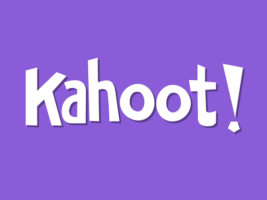
- Score: 4.6
- 3 to 8 years old
- Type: Website and mobile app
Features:
Kahoot! Studio for younger learners, which includes features appropriate for 3-5-year-olds. Some of the features of Kahoot! Studio for this age group includes interactive quizzes and games that encourage learning through play, engaging visuals and audio that capture children’s attention and enhance their learning experience, customizable quizzes that can be tailored to specific learning goals and subjects, safe and secure platform that allows parents and educators to monitor children’s progress and participation.
Subjects:
- Basic math concepts such as counting, shapes, and colors. The platform includes games and quizzes that help children learn counting, shapes, and colors in a fun and interactive way. Children can practice these skills through games that involve counting objects or matching shapes and colors.
- Language development, including vocabulary, sentence structure, and phonics. The platform includes games and quizzes that help children develop vocabulary, sentence structure, and phonics skills. Children can practice these skills through games that involve identifying objects or animals, matching words with pictures, and spelling simple words.
- Science topics like animals, weather, and plants. Children can learn about these subjects through interactive games that involve identifying different animals, learning about different weather patterns, and exploring the world of plants.
- Social and emotional learning, including feelings, relationships, and social skills. Children can learn about feelings, relationships, and social skills through games that involve identifying emotions, practicing turn-taking and sharing, and exploring different social situations.
Pros:
- Engaging and interactive: Kahoot uses gamification to make learning fun and engaging for young children, which can increase their motivation and participation in the learning process.
- Socialization: Kahoot can be used in group settings, allowing children to socialize and collaborate with their peers while learning.
- Active learning: Kahoot encourages active learning, which can help young children develop their cognitive and motor skills.
Cons:
- Limited content: While Kahoot Junior offers age-appropriate content for young children, the overall selection may be limited compared to other programs focusing on early childhood education.
- Screen time: Some parents and educators may be concerned about how much screen time young children are exposed to when using Kahoot or other digital learning tools.
- Need for adult supervision: Young children may require adult supervision and guidance when using Kahoot to ensure they use the program safely and effectively.
Kahoot! Studio for 3-5-year-olds is a platform designed to provide young children an interactive and engaging way to learn new skills and concepts. The platform offers a range of games and quizzes tailored to this age group’s developmental needs.
While Kahoot! Studio may not have as many features tailored specifically to young children as some other apps, it can still be a valuable tool for parents and educators looking to supplement their child’s learning in a fun and interactive way.
Apps for kids learning have revolutionized how children learn and acquire new knowledge. By leveraging technology to provide engaging and interactive content, learning apps have made it easier and more convenient for kids to learn at their own pace and style. Whether it’s learning a new language, practicing math skills, or exploring science concepts, countless learning apps are available to help children on their educational journey. We see a lot of benefits of using devices for managing the education process of our children, and it is amazing!
I have 3 children, and some time ago, I felt uncomfortable and nervous about using devices with my children. But I found a way to make it productive and see the positives of using devices.
However, it’s important for parents and educators to ensure that the apps chosen are age-appropriate, provide valuable learning experiences, and prioritize children’s safety and privacy. With the right learning apps, children can develop important skills and knowledge while having fun and exploring their interests.

